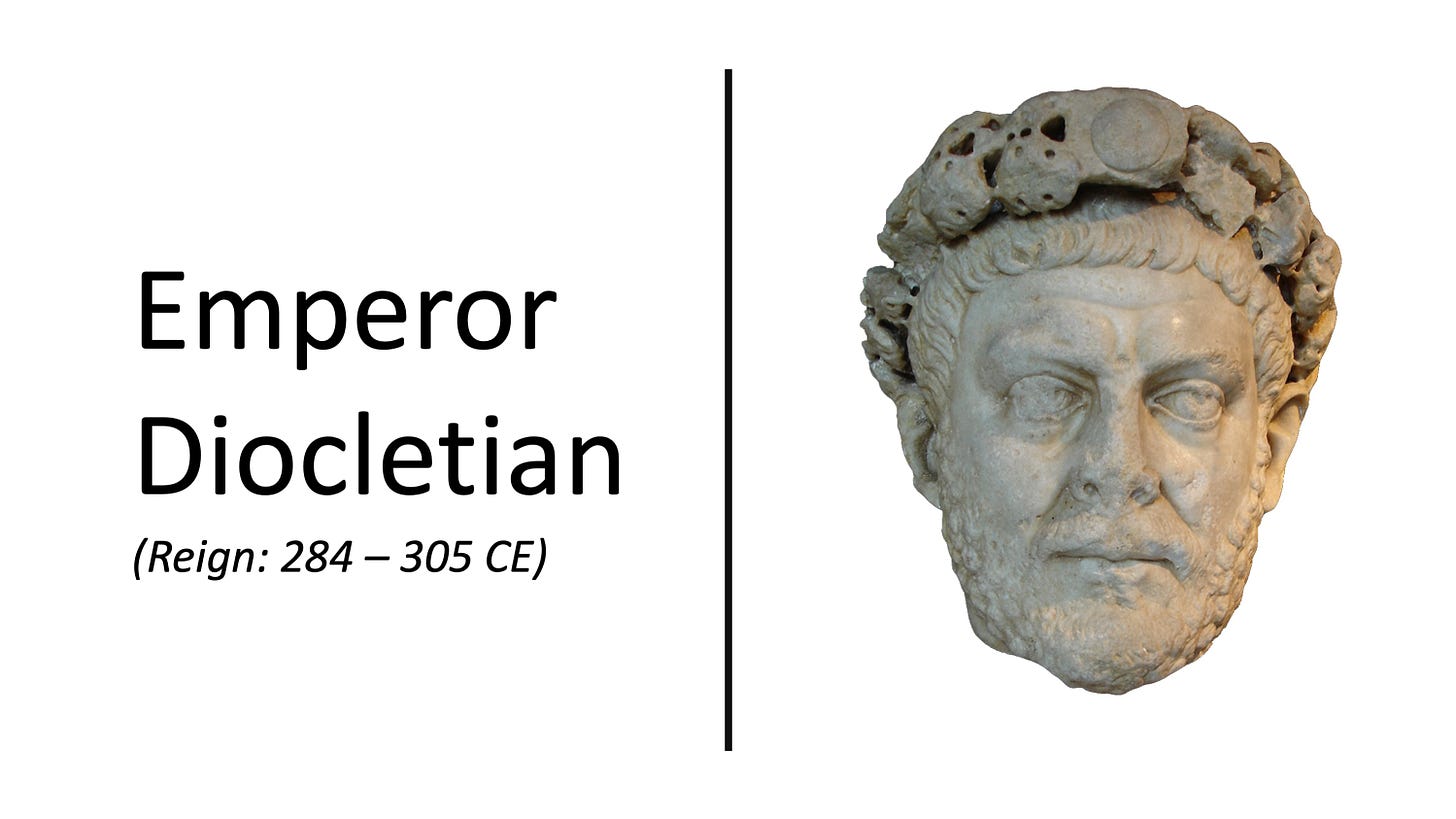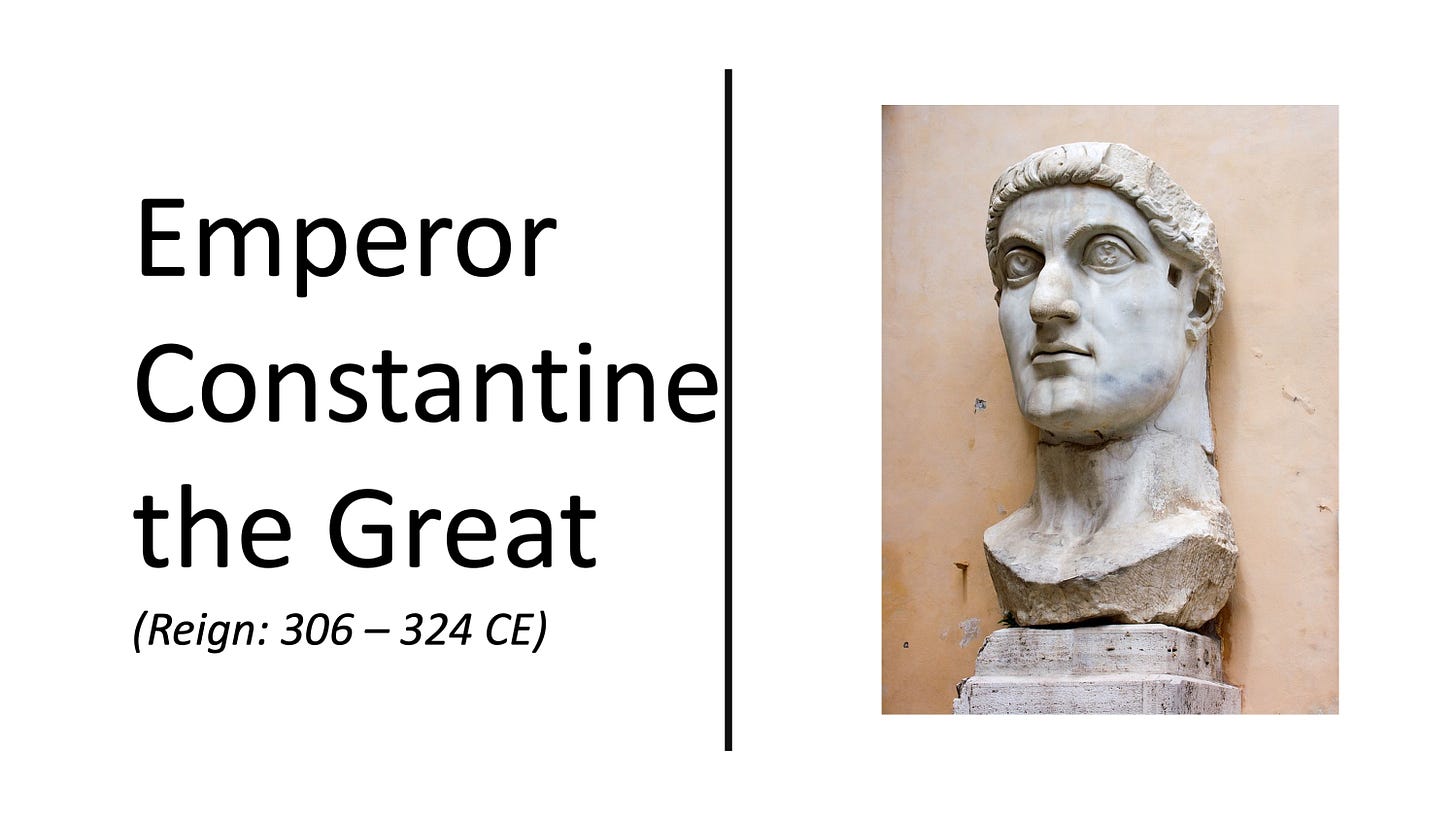The Bible #6: Church gets a Sword ... and a Bible
This is a long series on the Bible. Here are all the previous parts, that you really need to check out in order if possible to get the full picture of what I’ve suggested about the Bible thus far.
- Series Archive
- Please Note: There is a podcast version of this series available as well.
| Get Podcast Version |
In my last reflection on the Bible, I took some time to catch us up from when this series took an extended break at the end of last year. Something that I want to keep in our minds during this first part of a long series on the Bible is a basic flow of events:
- The Jesus Event —> The Jesus Movement —> The Jesus Documents —> The Jesus Book = The Jesus Story (the ongoing story of God)*
Before getting into the Bible directly, I’ve attempted to outline some historical factors that give us an important insight: the Bible is not the center of our faith, Jesus is the center (in harmony with the Father and Spirit, of course). Simply put, the question I’ve invited us to ask is: Why the Bible?
Well, for the earliest followers of Jesus, the Bible was the written witness of how Jesus changed everything. Even before it was a completed Bible—in the sense that it was systematically put together—the stories of Jesus and the writings of early leaders like Paul and Peter, rooted the Movement in moments of suffering. It was central, but not the center. The Jesus Event and more specifically, Jesus himself, provided the center. He had risen from a grave. Resurrection is real. Even death won’t ultimately win.
Last time, we looked at the tribulation the Jesus Movement faced for a season under Decius. Fortunately, his reign was short. Things seemed to calm down a bit until the latter part of the reign of Dioletian (284-305 CE). At this time, power is shared so technically Diocletian was co-emperor.
 |
In 299 CE, the story goes that the emperors in the imperial house took part in a sacrifice that was meant to predict the future by reading the entrails of the animals. (This was common in Greek and Roman religions).
It failed.
This sacrifice-gone-bad† led them to conclude that the gods were angry due to the growing presence of Christians. By 302, Diocletian ordered that the small Christian-Buddhist-Zorastrian sect (oversimplified description) referred to as Manicheans be eliminated. Their leader was burned to death and low-status members executed by the sword. The so-called high status members were forced into slavery in rock quarries.
In winter 303, Diocletian issued an official edit against Christianity. It ordered the destruction of Scriptures [documents not full bibles!], worship buildings, and martyrdoms. Christianity would keep spreading. Fortunately, the persecution was localized mostly. Many governors were lenient and most common people were not in favor of mistreating the Christians.
This lasted until Constantine the Great. He would offer the church both a sword and a Bible.
 |
I know. Some of you hear Constantine and think: you mean that guy who The Da Vinci Code exposed as the real reason we only have 27 specific documents in the New Testament. That’s silly conspiracy theory stuff that has been demonstrated over and again as ahistorical malarkey.
Constantine comes to power and quickly decides to favor the massive Jesus Movement. By this time, it had grown throughout the empire, and beyond. His Edict of Milan in 313 CE lifted all previous edits against Christians. They were free to finally worship out in open. In fact, the emperor “converts” and suddenly the documents that are universally read and recognized can be formally brought together in an organized fashion. After years of fear dominating the Jesus Movement, now for the first time they can worship freely without risking state-sanctioned harassment.
Imagine having funding for something that was done on the DL for so long (DL = “secretly” or “down low”). Imagine not having to exist in the shadows any longer. The best thing Constantine did for Christianity was give it enough freedom and resources to bring together the sacred Jesus Documents. Of course, the worst thing Constantine did was to bring the power of the sword (you know, that one Jesus told Peter to put away), strangely close to the historically nonviolent way of Christ. Peace is good, but peace gives the Jesus Movement an openness to compromise. Where there had been relatively few known Christians who would endorse any sort of violence up to this point, this new relationship with Rome laid the foundations for Christianity becoming the official religion of the Empire and for Augustine’s “Just War” theory to become the dominant perspective.
They say that power changes people. We inherited the blessings and curses of that power. The blessing that stands out for our purposes is the canonization of the Scriptures—out in the open, with resources—free from persecution. The curse, however, led to a Jesus Movement that at times behaved like an “Empire Movement” and we are still recovering from this impulse. (By the way, the most nuanced treatment of the so-called Constantinian Shift is found in, The Early Church on Killing by Ron Sider.)
So, we return to where we started in this series: Why the Bible?
Something happened (The Jesus Event, especially the resurrection)
Something compelling happened (The Jesus Event was so compelling that it launched the Jesus Movement which gave us the Jesus Documents and eventually the Jesus Book)
And finally, two last thoughts on this question after a brief passage of Scripture….
This is the disciple [John, “the disciple whom Jesus loved”] who testifies concerning these things and who wrote them down. We know that his testimony is true. 25 Jesus did many other things as well. If all of them were recorded, I imagine the world itself wouldn’t have enough room for the scrolls that would be written. John 21.24-25 CEB
If we believe the Jesus Event, then we too are invited to find our place in the Jesus Story.
During the earliest persecutions of Christians, they had to discern what it meant to be the continuation of the Jesus Story. Something happened in recent generations and they chose to step into that storyline, even if it meant giving their lives. The book pointed to a Person. The Person empowered them to become new persons.
A book can’t contain Jesus, but it points us in the wisest possible direction towards Jesus.
The book helps you know the Person. The book tells the story of this event that was so compelling it divided an empire. Jesus can’t be contained…. He’s beyond what a book could ever portray.
So, in the end, the church got the Bible … and the sword that came with it.
Notes:
*I’m being a bit playful here, so please don’t read too much into it what I mean by The Jesus Story. It is the ongoing movement of the Kingdom that started with an empty tomb 2k years ago.
†Sources for Imperial House sacrifice: Lactantius, De Mortibus Persecutorum 10.1–5; Barnes, "Sossianus Hierocles", 245; Barnes, Constantine and Eusebius, 18–19; Burgess, "Date of the Persecution", 157–58; Helgeland, "Christians and the Roman Army", 159; Liebeschuetz, 246–8; Odahl, 65.
Hi, I’m a creator
Hello friends, Today I want to share Scot McKnight’s words about "Jesus the Person" from the forward of my book Echoing Hope: How the Humanity of Jesus Redeems our Pain. Not only was it an honor to have Scot write a foreword for me, but it reads like a good newsletter/blog post. So, here it is: “I Grew Up Without Jesus the Person.” • 3 Minute Read I grew up in a kind of Christian faith that almost completely ignored Jesus. We learned Jesus stories, to be sure, mostly in Sunday School classes,...
Advent Greetings! I'm excited about an opportunity. So, without too much fluff, here it is: One person is getting set up with 30 of N.T. Wright's books. A whole collection: "N.T. Wright's Best Books for Christmas!" Joining in only takes 30 seconds or so. Here's a list of these great resources: The New Testament in its World New Testament for Everyone (entire 18 vol. devo-commentary set!) Paul and the Faithfulness of God (2 volumes) The Day Revolution Began Simply Jesus After You Believe...
This is a long series on the Bible. Here are all the previous parts, that you really need to check out in order if possible to get the full picture of what I’ve suggested about the Bible thus far. Series Archive Please Note: There is a podcast version of this series available as well. Get Podcast Version The Bible is central to the Christian faith but it is not the center. The center is occupied by the Trinitarian God whom Jesus reveals. Jesus revealed that the true heart of God is...